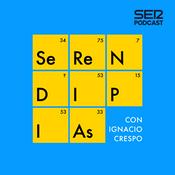498 episodios

DFSP # 499 Linux top 10
09/9/2025 | 25 min

DFSP # 498 Windows top 10
02/9/2025 | 19 min

DFSP # 497 ticket to ride
26/8/2025 | 15 min

DFSP # 496 Signed, Sealed, Exploited
19/8/2025 | 12 min

DFSP # 495 Corrupted from within
12/8/2025 | 14 min
Más podcasts de Ciencias
Podcasts a la moda de Ciencias
Acerca de Digital Forensic Survival Podcast
Listen to talk about computer forensic analysis, techniques, methodology, tool reviews and more.
Sitio web del podcastEscucha Digital Forensic Survival Podcast, Radiolab y muchos más podcasts de todo el mundo con la aplicación de radio.net

Descarga la app gratuita: radio.net
- Añadir radios y podcasts a favoritos
- Transmisión por Wi-Fi y Bluetooth
- Carplay & Android Auto compatible
- Muchas otras funciones de la app
Descarga la app gratuita: radio.net
- Añadir radios y podcasts a favoritos
- Transmisión por Wi-Fi y Bluetooth
- Carplay & Android Auto compatible
- Muchas otras funciones de la app


Digital Forensic Survival Podcast
Escanea el código,
Descarga la app,
Escucha.
Descarga la app,
Escucha.




























